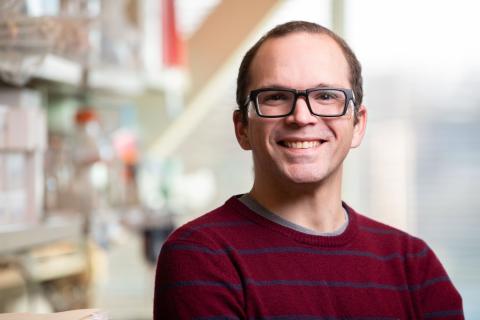Filter results
Tags
- (-) Mass Spectrometry (7)
- (-) Synthetic Biology (5)
- (-) sequencing (4)
- Viruses (11)
- Health (9)
- Virology (9)
- Virus (9)
- Soil Microbiology (8)
- PerCon SFA (7)
- Ions (4)
- Microbiome (4)
- Nanoparticles (4)
- Omics (4)
- Electrical energy (3)
- Energy (3)
- Fungi (3)
- RNA Sequence Analysis (3)
- Sodium (3)
- Aggregation (2)
- Anions (2)
- Cations (2)
- Genomics (2)
- metabolomics (2)
- Metagenomics (2)
- Polymer Materials (2)
- Proteomics (2)
- Scattering (2)
- Software Data Analysis (2)
- Solubility (2)
- Spectroscopy (2)
Category
Category
Category
"Visualizing the Hidden Half: Plant-Microbe Interactions in the Rhizosphere" Plant roots and the associated rhizosphere constitute a dynamic environment that fosters numerous intra- and interkingdom interactions, including metabolite exchange between plants and soil mediated by root exudates and the...
The rhizosphere represents a dynamic and complex interface between plant hosts and the microbial community found in the surrounding soil. While it is recognized that manipulating the rhizosphere has the potential to improve plant fitness and health, engineering the rhizosphere microbiome through...
Agriculture is the largest source of greenhouse gases (GHG) production. Conversion of nitrogen fertilizers into more reduced forms by microbes through a process known as biological nitrification drives GHG production, enhances proliferation of toxic algal blooms, and increases cost of crop...
A major challenge in biotechnology and biomanufacturing is the identification of a set of biomarkers for perturbations and metabolites of interest. Here, we develop a data-driven, transcriptome-wide approach to rank perturbation-inducible genes from time-series RNA sequencing data for the discovery...
Human infections caused by viral pathogens trigger a complex gamut of host responses that limit disease, resolve infection, generate immunity, and contribute to severe disease or death. Here, we present experimental methods and multi-omics data capture approaches representing the global host...
Category
Biography Young-Mo Kim is a senior bioanalytical chemist at PNNL. He received his PhD from Pohang University of Science and Technology in the School of Environmental Science and Engineering, studying analysis of metabolites during the bacterial and fungal degradation of xenobiotic substrates using...
Biography Carrie Nicora is a senior research scientist (chemist III) at PNNL, specializing in high-throughput scientific research sample management using modular automation techniques for processing a wide range of biological specimens for proteomic, metabolomic, and lipidomic analysis. She is an...
Category
Biography Dr. Smith's research interests span the development of advanced analytical methods and instrumentation, with particular emphasis on high-resolution separations and mass spectrometry, and their applications in biological and biomedical research. This has included creating and applying new...
Dr. Joshua Elmore is a Chemical Engineer at Pacific Northwest National Laboratory. He received his Ph. D. from the University of Georgia in the Department of Molecular Biology and Biochemistry studying the mechanisms of CRISPR/Cas microbial immune systems in hyperthermophilic Archaea. He was a...
Category
Elise Van Fossen is a Post-Doctorate Research Associate in the Biological Sciences Division. Her research focuses on developing synthetic and chemical biology techniques for microorganism engineering.
Category
Biography Kristin Burnum-Johnson is a senior scientist and team lead of the Biomolecular Pathways team at PNNL. Burnum-Johnson earned her PhD in Biochemistry from Vanderbilt University with Professor Richard M. Caprioli and then completed a postdoctoral fellowship at PNNL with Dr. Richard D. Smith...






